Related Research Articles
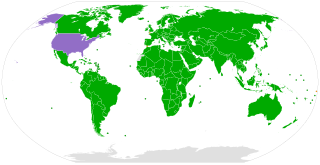
The United Nations Convention on the Rights of the Child is an international human rights treaty which sets out the civil, political, economic, social, health and cultural rights of children. The convention defines a child as any human being under the age of eighteen, unless the age of majority is attained earlier under national legislation.

The Mid Day Meal Scheme is a school meal programme in India designed to better the nutritional status of school-age children nationwide. The scheme has been renamed as PM-POSHAN Scheme. The programme supplies free lunches on working days for children in government primary and upper primary schools, government aided Anganwadis, Madarsa and Maqtabs. Serving 120 million children in over 1.27 million schools and Education Guarantee Scheme centres, the Midday Meal Scheme is the largest of its kind in the world.
International adoption is a type of adoption in which an individual or couple residing in one country becomes the legal and permanent parent(s) of a child who is a national of another country. In general, prospective adoptive parents must meet the legal adoption requirements of their country of residence and those of the country whose nationality the child holds.

The Juvenile Justice Act, 2000 is the primary legal framework for juvenile justice in India. The act provides for a special approach towards the prevention and treatment of juvenile delinquency and provides a framework for the protection, treatment and rehabilitation of children in the purview of the juvenile justice system. This law, brought in compliance of the 1989 UN Convention on the Rights of the Child (UNCRC), repealed the earlier Juvenile Justice Act of 1986 after India signed and ratified the UNCRC in 1992. In the wake of Delhi gang rape, the law suffered a nationwide criticism owing to its helplessness against crimes where juveniles get involved in heinous crimes like rape and murder. In 2015, responding to the public sentiment, both the houses of parliament in India further amended the bill that proposed adult-like treatment for juveniles aged 16–18 above accused of heinous crimes. The lower house, i.e. Lok Sabha passed the bill on 7 May 2015 and the upper house, i.e. Rajya Sabha on 22 December 2015. The bill was approved by President Pranab Mukherjee's assent on 31 December 2015.
India has a robust social security legislative framework governing social security, encompassing multiple labour laws and regulations. These laws govern various aspects of social security, particularly focusing on the welfare of the workforce. The primary objective of these measures is to foster sound industrial relations, cultivate a high-quality work environment, ensure legislative compliance, and mitigate risks such as accidents and health concerns. Moreover, social security initiatives aim to safeguard against social risks such as retirement, maternity, healthcare and unemployment while tax-funded social assistance aims to reduce inequalities and poverty. The Directive Principles of State Policy, enshrined in Part IV of the Indian Constitution reflects that India is a welfare state. Food security to all Indians are guaranteed under the National Food Security Act, 2013 where the government provides highly subsidised food grains or a food security allowance to economically vulnerable people. The system has since been universalised with the passing of The Code on Social Security, 2020. These cover most of the Indian population with social protection in various situations in their lives.
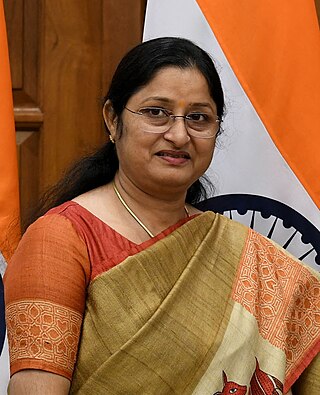
The Ministry of Women and Child Development, a branch of the Government of India, is an apex body for formulation and administration of the rules and regulations and laws relating to women and child development in India. The current minister for the Ministry of Women and Child Development is Annpurna Devi having held the portfolio since 2024.
Ramavarmapuram is the northern suburb of Thrissur City in Kerala. This suburban area is home to several governmental and other institutions of national importance. The largest menhir type megalithic monument in granite in Kerala is found here. A local catholic church has recently been adorned with mural paintings in the traditional Kerala style. This is the first instance of such a church decoration in Kerala in modern times.
A district planning committee (DPC) is the committee created as per article 243ZD of the Constitution of India at the district level for planning at the district and below. The committee in each district should consolidate the plans prepared by the Panchayats and the municipalities in the district and prepare a draft development plan for the district.

The National Health Mission (NHM) was launched by the government of India in 2013 subsuming the National Rural Health Mission and National Urban Health Mission. It was further extended in March 2018, to continue until March 2020. It is headed by Mission Director and monitored by National Level Monitors appointed by the Government of India.Rural Health Mission (NRHM) and the recently launched National Urban Health Mission (NUHM). Main program components include Health System Strengthening (RMNCH+A) in rural and urban areas- Reproductive-Maternal- Neonatal-Child and Adolescent Health, and Communicable and Non-Communicable Diseases. NHM envisages achievement of universal access to equitable, affordable and quality health care services that are accountable and responsive to the needs of the people.
CHILDLINE 1098 is a service of Ministry of Women and Child Development. Childline India Foundation is a non-government organisation (NGO) in India that operates a telephone helpline called Childline, for children in distress. It was India's first 24-hour, toll free, phone outreach service for children. Childline 1098 service is available all over India. It is available in 602+ districts, 144+ railway stations and 11 bus terminals have Child Help Desks.
The National Commission for Protection of Child Rights (NCPCR) is an Indian statutory body established by an Act of Parliament, the Commission for Protection of Child Rights (CPCR) Act, 2005. The Commission works under the aegis of Ministry of Women and Child Development, GoI. The Commission became operational on 5 March 2007.
Child sexual abuse laws in India have been enacted as part of the child protection policies of India. The Parliament of India passed the 'Protection of Children Against Sexual Offences Bill (POCSO), 2011' regarding child sexual abuse on 22 May 2012, making it an Act. A guideline was passed by the Ministry of Women and Child Development, India. The rules formulated by the government in accordance with the law had also been notified on the November 2012 and the law had become ready for implementation. There have been many calls for more stringent laws.
Rashtriya Madhyamik Shiksha Abhiyan (RMSA) is a centrally sponsored scheme of the Ministry of Human Resource Development, Government of India, for the development of secondary education in public schools throughout India. It was launched in March 2009. The implementation of the scheme has started from 2009–2010 to provide conditions for an efficient growth, development and equity for all. The scheme includes a multidimensional research, technical consulting, various implementations and funding support. The principal objectives are to enhance quality of secondary education and increase the total enrollment rate from 52% to 75% in five years, i.e. from 2009 to 2014. It aims to provide universal education for all children between 15 and 16 years of age. The funding from the central ministry is provided through state governments, which establish separate implementing agencies. The total budget allocated during the XI Five Year Plan (2002-2007) was ₹2,012 billion (US$24 billion).
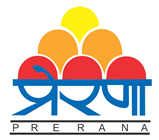
Prerana is a non-governmental organization (NGO) that works in the red-light districts of Mumbai, India to protect children vulnerable to commercial sexual exploitation and trafficking. It was established in 1986.
Odisha State Child Protection Society (OSCPS) is the technical, fundamental and functional unit of Women & Child Development Department, Government of Odisha, for implementation of Integrated Child Protection Scheme (ICPS). OSCPS has been registered in the year 2009 under Society Registration Act. District Child Protection Units (DCPUs) as the extended bodies of OSCPS, have been constituted to carry out the activities of ICPS at district and sub-district level.
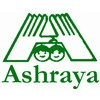
Ashraya is an Indian non governmental organisation headquartered at Indiranagar, Bengaluru, Karnataka, India, working for the welfare of destitute children and empowerment of women.
Gutta Muniratnam was an Indian social worker, a member of the National Planning Commission of India and the founder of Rashtriya Seva Samithi (RASS), a non governmental organization engaged in the social welfare activities in over 2500 socio-economically backward villages in the Rayalaseema region, spread across the present day states of Andhra Pradesh and Telangana. He was honored by the Government of India, in 2012, with the fourth highest Indian civilian award of Padma Shri.
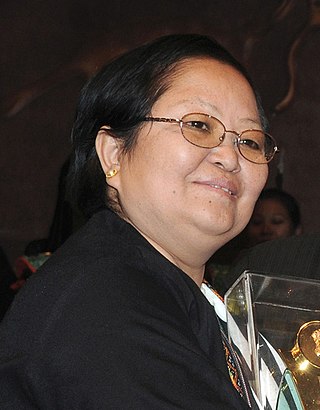
Binny Yanga was an Indian social worker, a member of the National Planning Commission of India and the founder of Oju Welfare Association (OWA), a non governmental organization based in Arunachal Pradesh, working for the welfare of the weaker sections of the society and campaigning against social Illnesses such as child marriage, forced marriage and dowry. She was honored by the Government of India, in 2012, with the fourth highest Indian civilian award of Padma Shri.

Juvenile Justice Act, 2015 has been passed by Parliament of India amidst intense controversy, debate, and protest on many of its provisions by Child Rights fraternity. It replaced the Indian juvenile delinquency law, Juvenile Justice Act, 2000, and allows for juveniles in conflict with Law in the age group of 16–18, involved in Heinous Offences, to be tried as adults. The Act also sought to create a universally accessible adoption law for India, overtaking the Hindu Adoptions and Maintenance Act (1956) and the Guardians and Wards Act (1890), though not replacing them. The Act came into force from 15 January 2016.

Nilam Sawhney is currently serving as chief election commissioner of Andhra Pradesh. She served as the first woman Chief Secretary of the newly formed state of Andhra Pradesh, India, from November 2019 to January 2021. She is a 1984 batch Indian Administrative Service (IAS) officer of Andhra Pradesh cadre. She previously held the position of Secretary of Union Ministry of Social Justice and Empowerment from 2018 to 2019 and before this served as the Secretary of Central Vigilance Commission in the Government of India from 2015 to 2018.
References
- ↑ Kannan, Amutha (6 September 2012). "District Child Protection Society to implement integrated scheme". The Hindu. Retrieved 3 July 2014.
- ↑ Manjul, Tarannum (26 November 2010). "Child protection scheme set for launch". The Indian Express. Retrieved 3 July 2014.
- ↑ "Integrated Child Protection Scheme". Childline India. Archived from the original on 14 July 2014. Retrieved 3 July 2014.